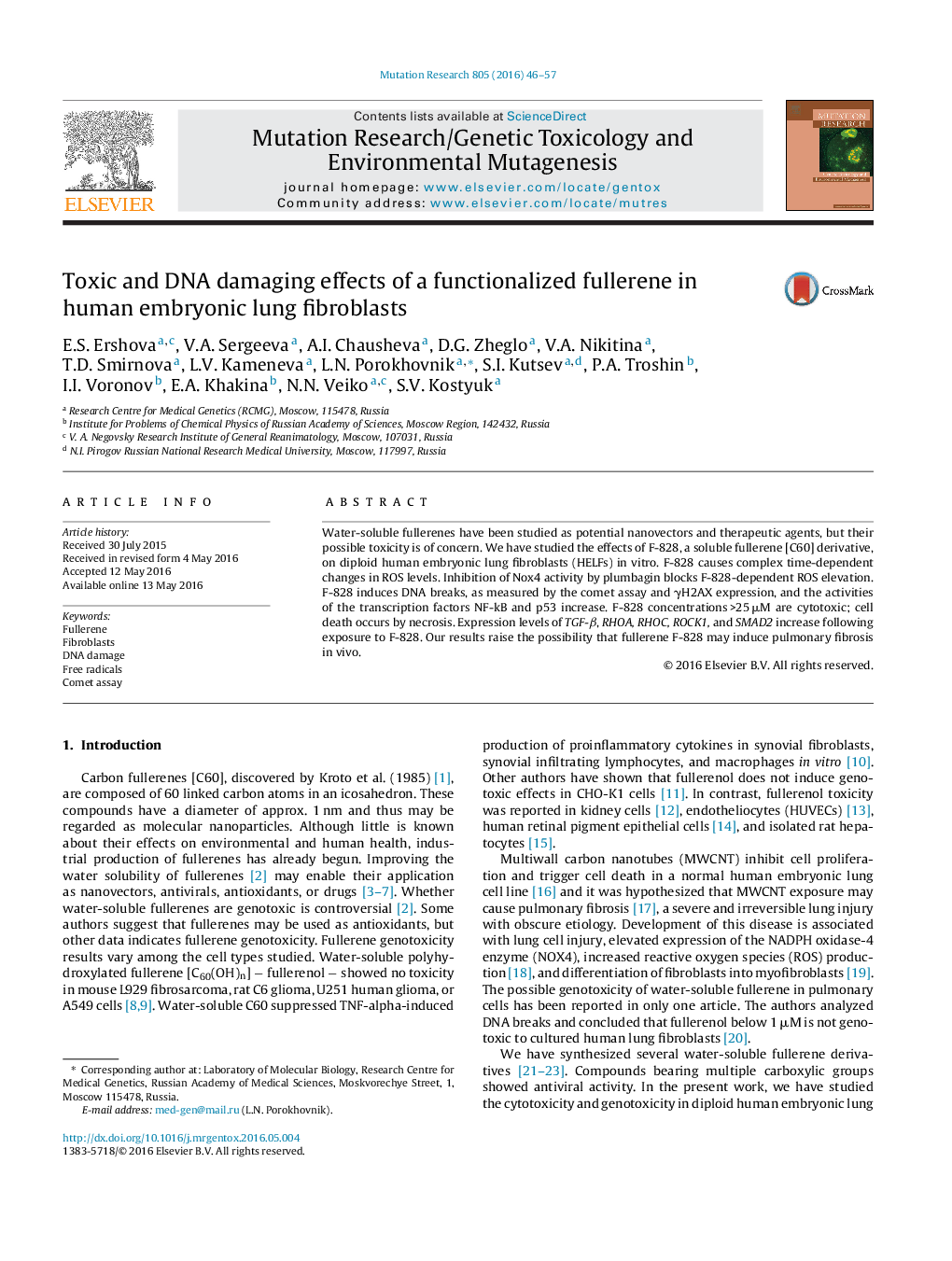| Article ID | Journal | Published Year | Pages | File Type |
|---|---|---|---|---|
| 2147799 | Mutation Research/Genetic Toxicology and Environmental Mutagenesis | 2016 | 12 Pages |
Abstract
Water-soluble fullerenes have been studied as potential nanovectors and therapeutic agents, but their possible toxicity is of concern. We have studied the effects of F-828, a soluble fullerene [C60] derivative, on diploid human embryonic lung fibroblasts (HELFs) in vitro. F-828 causes complex time-dependent changes in ROS levels. Inhibition of Nox4 activity by plumbagin blocks F-828-dependent ROS elevation. F-828 induces DNA breaks, as measured by the comet assay and γH2AX expression, and the activities of the transcription factors NF-kB and p53 increase. F-828 concentrations >25 μM are cytotoxic; cell death occurs by necrosis. Expression levels of TGF-β, RHOA, RHOC, ROCK1, and SMAD2 increase following exposure to F-828. Our results raise the possibility that fullerene F-828 may induce pulmonary fibrosis in vivo.
Related Topics
Life Sciences
Biochemistry, Genetics and Molecular Biology
Cancer Research
Authors
E.S. Ershova, V.A. Sergeeva, A.I. Chausheva, D.G. Zheglo, V.A. Nikitina, T.D. Smirnova, L.V. Kameneva, L.N. Porokhovnik, S.I. Kutsev, P.A. Troshin, I.I. Voronov, E.A. Khakina, N.N. Veiko, S.V. Kostyuk,
